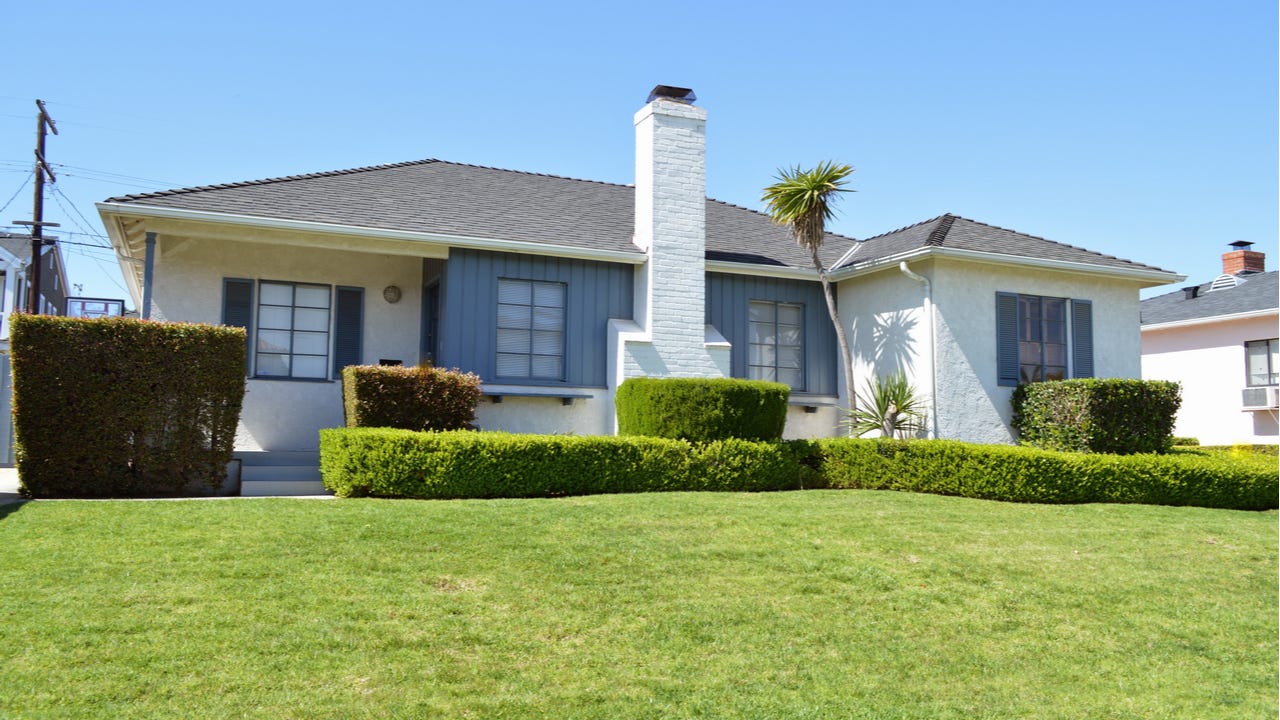What is wholesale mortgage lending?

Key takeaways
- A wholesale mortgage lender is an institution that offers mortgages through third parties, such as a bank, credit union or mortgage broker.
- Wholesale lenders can offer cheaper rates and more relaxed eligibility rules compared to traditional lenders, but you won’t communicate directly with the lender.
There are a bevy of mortgage lenders out there, but they come in two basic types: retail and wholesale. Retail lenders work directly with individual borrowers, but wholesale mortgage lenders don’t.
Wholesale mortgage lenders offer mortgages through third parties, such as a bank, credit union or another lender. They may also partner with mortgage brokers, who work with individuals to find the right loan — sometimes at a discounted rate — and prepare the application.
Here’s what to know about wholesale lending and what to expect if you borrow money from a wholesale mortgage lender.
How wholesale mortgage lending works
In wholesale lending, the borrower typically doesn’t have direct contact with the firm that puts up the money and sets the loan’s rate and terms. Instead, the borrower interacts with another financial institution or professional. This third party facilitates the borrower’s application and is their contact throughout the loan’s underwriting process.
The wholesaler also technically owns the mortgage. And, once a loan closes, a wholesale lender typically sells it on the secondary mortgage market to free up capital to fund more mortgages.
Because they don’t pay for extensive advertising or employ customer reps, wholesale mortgage lenders often offer more competitive rates and have more flexible loan options and requirements than retail lenders.
Wholesale vs. retail mortgage lenders
These are the major differences between wholesale and retail mortgage lenders:
- Require a middleman: Wholesale lenders don’t deal directly with borrowers; they operate behind the financing scenes. In contrast, retail lenders connect with borrowers directly. You’ll likely see ads for them and be able to apply directly through their websites.
- Limited home loan options: Wholesale lenders typically have fairly narrow home loan offerings. However, when working with a retail lender, such as a bank or credit union, borrowers can usually pick from multiple home loan products, which are underwritten, serviced and funded in-house by the lender.
- Few additional financial products: Wholesale mortgage lending companies focus exclusively on home loans. Retail lenders tend to offer other financial products as well, like lines of credit, checking accounts and business loans.
The role of mortgage brokers in wholesale lending
If you’re interested in easy comparison shopping and having someone walk you through the lending process, the mortgage broker-and-wholesale-lender route might be a good fit for you.
Mortgage brokers typically have existing relationships with wholesale lenders. They act as the lender’s loan officer, in a sense. The broker will help you complete your application, and when you send it off for approval, the broker will coordinate with the wholesale lender’s underwriting team.
By shopping your information around to their wholesale lender contacts, a broker may also be able to get you more competitive rates and terms than you’d find shopping for a home loan independently. Often, they’ll present you with several options and help you decide between them.
Wholesale mortgage lending process
The process of applying for a mortgage through a wholesale lender is similar to applying for one through a retail lender. The main difference is that your broker will be your contact during the entire process. Here’s what you can expect:
- Step 1: Gather the documentation you’ll need, and connect with a mortgage broker to complete a loan application.
- Step 2: The mortgage broker submits your application to the wholesale lender.
- Step 3: A member of the wholesale lender’s underwriting team analyzes and verifies the information in your loan application and makes a lending decision.
- Step 4: If your application is approved, the mortgage broker provides you with a commitment letter from the wholesale lender detailing the loan terms and any applicable conditions.
- Step 5: The mortgage broker coordinates with the wholesale lender to close your home loan. Your broker will notify you if there are any conditions you must meet to finalize the mortgage.
- Step 6: Once all conditions are met, the wholesale lender issues the “clear to close” to the mortgage broker, who’ll pass the information on to you. You’ll send your down payment and the funds for closing costs — which includes the broker’s fee, if applicable — to the title company shortly before closing.
- Step 7: At closing, you’ll sign the loan documents to finalize your end of the transaction.
- Step 8: The wholesale lender funds the home loan.
Pros and cons of wholesale mortgage lending
If you’re considering wholesale mortgage lending, keep these pros and cons in mind:

Pros of wholesale mortgage lending
- Potentially less stringent eligibility guidelines
- Potentially more competitive rates and flexible loan terms
- Personalized support from a mortgage broker

Cons of wholesale mortgage lending
- No direct contact with the lender
- Mortgage broker fees, if applicable
- Higher likelihood of loan sell-off following closing
The top wholesale mortgage lenders in 2024
Here are the 10 U.S. lenders doing the most wholesale mortgage business as of 2024. They’re ranked by the dollar volume of their wholesale mortgage operations. Note that some are also retail lenders.
| Lender | Wholesale volume (billions) | % of business that’s wholesale |
|---|---|---|
| United Wholesale Mortgage | $108.26 | 100 |
| Pennymac | $8.13 | 7 |
| Newrez | $4.79 | 12 |
| Plaza Home Mortgage | $3.73 | 49 |
| LoanStream Mortgage | $3.56 | 89 |
| Kind Lending LLC | $3.5 | 92 |
| Paramount Residential Mortgage Group | $3.17 | 39 |
| Fairway Mortgage Corp. | $2.5 | 8 |
| A&D Mortgage LLC | $2.2 | 90 |
| CMG Financial | $2.1 | 8 |
| Source: The Scotsman Guide |
How to choose a wholesale mortgage company
When choosing a wholesale mortgage company, focus on the loan options and terms you’re offered. Among the lenders offering the loan type you want, look for the one with the lowest rates and fees.
While you’ll want to make sure that your wholesale mortgage lender has a decent track record — no negative attention from federal regulators, for example — you can spend less time worrying about their customer service. After all, in the origination phase, you’ll be dealing with a third party, and your loan will likely be serviced by a company other than the original lender.
Is wholesale mortgage lending right for you?
Getting a loan from a wholesale mortgage lender might be a good option if your credit history is less than stellar, since they tend to have less strict requirements. And because they don’t have to spend a lot on advertising, loan officers and overhead, wholesale lenders might offer better terms and charge fewer or less expensive closing costs.
However, because you’re not directly in touch with a wholesale lender, communication could be slower and seem more mysterious. Most mortgage brokers work on commission, but some also charge a fee. Include this fee in your calculations as you weigh your options.
Additional reporting by Mia Taylor
Why we ask for feedback Your feedback helps us improve our content and services. It takes less than a minute to complete.
Your responses are anonymous and will only be used for improving our website.
You may also like

What is an assumable mortgage?

What is a no-doc HELOC or home equity loan?

What is a small personal loan?




